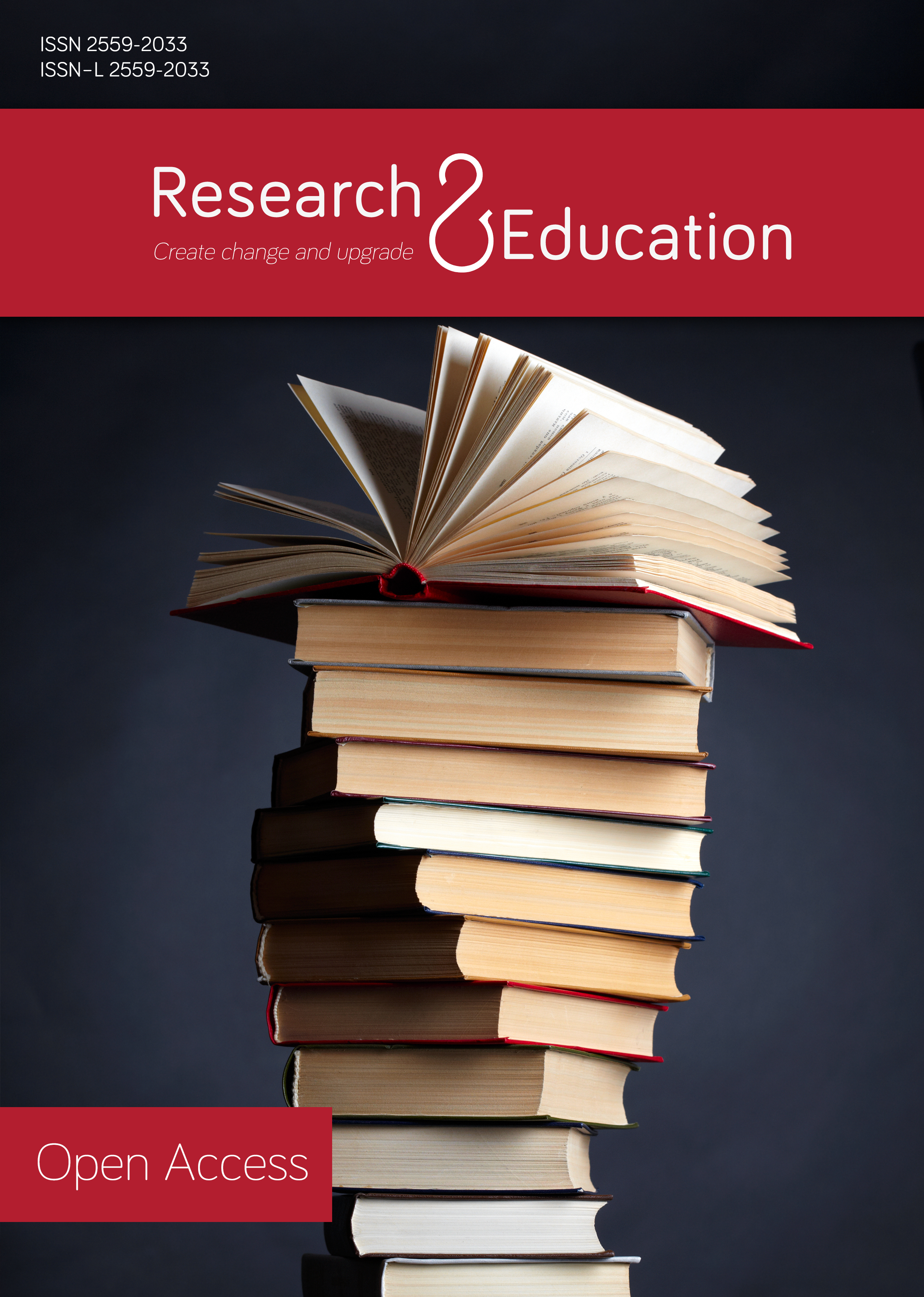REd Issue 5
-
The Theme Of Exile In The Novels Studied By Students During High School
Iasmina Margentina Bot22/06/202210.56177/red.5.2021.art.4Research & EducationThe exile has become a topic which managed to catch the attention of many people in the past few centuries because it explores the multiple ways in which a person can change his/ her life perceptions during the process of displacement from one place to another. Recently, the theme of exile has been discussed and studied over Romanian, English or Universal literature lessons, school subjects which are taught during high school, and it succeeded in receiving positive feedback from the students. This situation proves that the topic is still current. This article focuses on the effects which the exile inflicts upon the characters from The Ministry of Pain and The Museum of Unconditional Surrender, novels which are discussed during the Universal literature lessons and which were written by an European writer, Dubravka Ugresič. Their way of perceiving life changes in the moment they have lost contact with Yugoslavia because they feel that they do not belong anywhere. In both her novels, the author manages to create a special bond between the characters and their homeland which proves to be essential for the exiles. In this process of adapting to an unknown space, the characters think that they have lost their identity and the memories which bring nostalgy represent the last threads of connection with their homeland.Read More -
Interdisciplinary Ideas for Fostering Social Connectedness Through Civic Involvement of Higher Education Students In Times Of Crisis
Alina Simona Rusu24/06/202210.56177/red.5.2021.art.3Research & EducationThis theoretical paper proposes an educational solution based on interdisciplinary curricular development (i.e., elements of neuroeducation, applied evolutionary psychology), which refers to the insertion in the existent curricula of a learning objective that has the potential to foster the development of social connectedness of HEI students in times of crisis. This learning objective is designed to increase the awareness of the students towards the mental health and survival-related benefits of helping others in needs not only to the beneficiaries from the community, but also to themselves. Also, it is assumed that this learning objective has the potential to foster the interest of the academic staff towards considering Service-Learning educational strategy as a valuable tool in the context of accomplishing the third mission of Higher Education Institutions.Read More -
The Perception Of Romanian Students Regarding The Corporate Social Responsibility Practices Identified In The Tertiary-Level Education Sector
Andra Modreanu Gabriela Andrișan28/06/202210.56177/red.5.2021.art.2Research & EducationDue to the ascending responsible trends, companies, institutions and even individuals have the opportunity, nowadays, to reconceive their practices and, therefore, contribute to the development of collective wellbeing. In this regard, corporate social responsibility may be perceived as an appropriate instrument. Corporate social responsibility extends beyond traditional business practices by establishing a positive behavior based on ethical, legal, and philanthropic principles, willingness to educate individuals, to support and sustain the environment, society and future generations. Universities and businesses alike should be able to provide coherent explanations to the emerging realities of the environment and society. The higher-level educational institutions’ primary function is to consider and fulfill the expectations of the society in which it operates. Hence, forming professionals in a responsible manner has to become one of the main objectives of the academic environment. Therefore, the aim of this study was to analyze the social responsibility of a reputable university located in Bucharest, from a legitimate stakeholder perspective, respectively, the student. Hence, a quantitative approach, namely a questionnaire, has been used in order to collect primary data. Findings reveal that an effort has been made in the Romanian academic context to promote and encourage responsible practices.Read More -
Maurizio Ferraris – Post-Coronial Studies – Seicento sfumature di virus [Post-Coronial Studies – 600 shades of virus], 2021, Giulio Enaudi Editore S.p.A., Turin, Italy.
Erika Guadagnin1/7/202210.56177/red.5.2021.art.1EducationThe proposed book tries to map, from a philosophical point of view, a new phenomenon that developed in the pandemic years under the title of Post-Colonial Studies - 600 shades of virus. The author innovates conceptually by proposing the term post-coronial studies, in which he subsumes a series of theoretical and reflective analyses of how the threat of the Covid-19 virus has changed social thinking and human life forever. Ferraris distinguishes between the term "post-colonial studies" (he associates it with a closed historical stage, in which humanity has victimized itself sufficiently for its decisions) and "postcolonial studies", in which, in essence, it aims to analyse behaviours and logical strings that have brought a change of paradigms in our lives, from the approach of technology, to the ecological impact, to progress, all in an innovative key and marked by the hope for a prosperous future.Read More

Graphical Abstract Exploring Asia in the Bibliography of Dissertations in the Field of Cultural Studies at a Master’s Programme in Romania
Graphical Abstract Gamification as a Curriculum Strategy: Effects on Mathematics Performance and Anxiety in Relation to Intelligence Types
Graphical Abstract The Journey of Academic Resilience: Lived Experiences of Overcoming Academic Challenges by International Master’s Students in Chinese Universities
Graphical Abstract Students’ Personality Traits as Predictor of Career Choice among Undergraduates in Ekiti State University, Ado Ekiti
Graphical Abstract Access to Education as a Human Security Requisite in the Context of Ukrainian Refugees Inclusion in Romanial
Graphical Abstract Discerning Myths from Methods: University Faculty’s Understanding of Learning Science and Metacognition on Pedagogy
Graphical Abstract Exploring Artificial Intelligence Tool Adoption in a Higher Education Faculty’s Pedagogical Practices through CHAT: Supporting International Students in Improving Academic Performance
Graphical Abstract Exploring Artificial Intelligence Tool Adoption in a Higher Education Faculty’s Pedagogical Practices through CHAT: Supporting International Students in Improving Academic Performance
